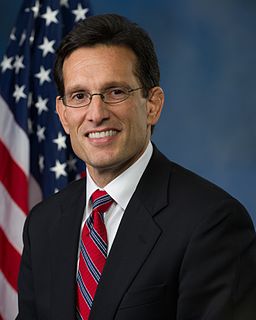Top 1200 Military Spending Quotes & Sayings
Explore popular Military Spending quotes.
Last updated on April 14, 2025.
I have fought against excessive spending my entire career. And I got plans to reduce and eliminate unnecessary and wasteful spending and if there's anybody here who thinks there aren't agencies of government where spending can be cut and their budgets slashed they have not spent a lot of time in Washington.
Now all of us deplore this vast military spending. Yet, in the face of the Soviet attitude, we realize its necessity. Whatever the cost, America will keep itself secure. But in the process we must not, by our own hand, destroy or distort the American system. This we could do by useless overspending. I know one sure way to overspend. That is by overindulging sentimental attachments to outmoded military machines and concepts.
Let me be clear: I'm a believer in a robust military, which is essential for backing up diplomacy. But the implication is that we need a balanced tool chest of diplomatic and military tools alike. Instead, we have a billionaire military and a pauper diplomacy. The U.S. military now has more people in its marching bands than the State Department has in its foreign service - and that's preposterous.
Does it sound outrageous to you that military spending for fiscal year 2000 will be almost $290 billion and all other domestic discretionary spending, such as education, job training, housing, Amtrak, medical research, environment, Head Start and many other worthwhile programs will total $246 billion, the biggest disparity in modern times ?
When you look at February's (2011) deficit spending alone, and the fact that it was larger than what our total deficit spending was in 2007, the proposals that the Senate is sending us simply are ridiculous, because it's not even a solution. It doesn't address the amount of spending that we have in a week's time. We need to get serious.
Action had to be taken in response to the terrorist attacks on September 11, but I am very concerned about the current administration's rhetoric and apparent zeal to expand military action to other places. I'm afraid that terrorism is being used as an excuse, not only for possible military action in such places as Iraq, Iran, and the Philippines, but also for exorbitant increases in defense spending that have nothing to do with terrorism.
The American people elected us here to cut spending so we can create an environment for jobs in America. The House has acted. We have demonstrated that we want to see spending, discretionary spending, brought down to levels of 2008. We've seen no counteraction. We have seen no position that has been expressed by the other side at all.
Conservatives in general, and even so called Tea Party conservatives, are not against transportation spending. Indeed, interstate commerce is one purpose of interstate highways and byways, and is one of the things the federal government is actually supposed to spend our tax dollars on. What conservatives are opposed to is needless and excessive spending, pork-barrel spending, deficit spending, spending to pick winners and losers among American individuals and corporations, and spending to promote the social and economic whims of the Washington few.
The reality is that business and investment spending are the true leading indicators of the economy and the stock market. If you want to know where the stock market is headed, forget about consumer spending and retail sales figures. Look to business spending, price inflation, interest rates, and productivity gains.
In different countries the basis of resistance takes different forms, but it comes chiefly from the conservative groups. Hence it becomes increasingly difficult to go on spending in the presence of persisting deficits and rising debt. Some form of spending must be found that will command the support of the conservative groups. Political leaders, embarrassed by their subsidies to the poor, soon learned that one of the easiest ways to spend money is on military establishments and armaments, because it commands the support of the groups most opposed to spending.
Do we know what practices would be effective in resisting aliens? Wouldn't the public have to be convinced, in all countries, that there is such a threat? When have the major nations on this planet shown they can agree on any military course of action? Earthlings are already spending a trillion dollars a year on things military. Where would the money come from? Krugman seems to be suggesting more lies are what is needed. How about everybody cutting their military budgets in half and feeding people instead?
Under the Barack Obama rules, if you wanted to help the military, if you wanted a pay raise for the soldiers, if you wanted to buy new airplanes and new ships and more munitions, a dollar for that, you had to have a dollar domestic spending. We just broke that parity. That's the biggest victory we could have had: $25 billion year over year for our military, to begin to rebuild our military, without that kind of corresponding increase in domestic discretionary spending.
OK, so $1 trillion is what it costs to run the federal government for one year. So this money's going to run through September of 2016. Half of the trillion dollars goes to defense spending and the Pentagon. The other half goes to domestic spending - everything from prisons to parks. So there's also about 74 billion in there that goes to the military operations that we have ongoing in Iraq and Afghanistan and Syria.
Donald Trump in Philadelphia, and he's delivering a very substantive speech on military preparedness, the status of the current military. He detailed the deterioration of the U.S. military in the past eight years and explained how he's going to rebuild it and why we need to, and it's a very tough audience. It's an expressly military audience, and they are of course listening for any sign that he's not really genuine here. I think, knocking this out of the park as far as that audience is concerned.
Whether government finances its added spending by increasing taxes, by borrowing, or by inflating the currency, the added spending will be offset by reduced private spending. Furthermore, private spending is generally more efficient than the government spending that would replace it because people act more carefully when they spend their own money than when they spend other people's money.
What is and isn't justified by military necessity is, naturally, open to interpretation. One of the key concepts, though, is the law of proportionality. A military attack that results in civilian casualties - 'collateral damage' - is acceptable as long as the military benefits outweigh the price that is paid by humanity.
General Atomics, the progenitor of General Atomics Aeronautical Systems, started life in 1955 when a major military contractor, General Dynamics, feared that the military hardware market might dry up. It began exploring peacetime uses of atomic energy, but abandoned the effort when cold-war military spending took off.
If we want to strengthen the EU, then we urgently need a two-pronged approach. First, we can save a lot of money if we finally move to harness synergy effects in military spending. The parallel structures in the individual armies still remain far too costly, and we could save a lot by making joint purchases. Second, we cannot only think in terms of conventional military logic, but instead have to be far better prepared to thwart cyberattacks. Most importantly, we can no longer allow the EU to become bogged down in petty details.
Senator McGovern is very sincere when he says that he will try to cut the military budget by 30%. And this is to drive a knife in the heart of Israel... Jews don't like big military budgets. But it is now an interest of the Jews to have a large and powerful military establishment in the United States... American Jews who care about the survival of the state of Israel have to say, no, we don't want to cut the military budget, it is important to keep that military budget big, so that we can defend Israel.




















































